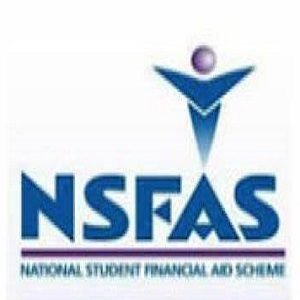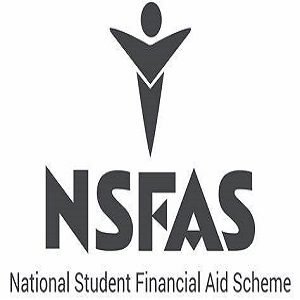Empowering Tomorrow’s Leaders: Sasol Bursaries – Opportunities for South African Youth
Introduction:
In the realm of South African education and career advancement, Sasol stands as a beacon of opportunity for aspiring young individuals. Through its robust bursary program, Sasol not only invests in the academic pursuits of talented
South African youth but also fosters the development of future leaders across various fields. From engineering to science, commerce, and technology, Sasol bursaries open doors to a world of possibilities, empowering students to pursue their dreams and make meaningful contributions to society.

In this article, we delve into the Sasol bursary program, exploring its significance, eligibility criteria, application process, and the impact it has on shaping the trajectory of South African youth.
The Significance of Sasol Bursaries:
Sasol, a leading energy and chemical company in South Africa, has long recognized the importance of nurturing local talent and fostering innovation. The Sasol bursary program is a testament to this commitment, offering financial support to deserving students pursuing undergraduate studies in critical fields relevant to the company’s operations. By providing bursaries, Sasol not only addresses the financial barriers that many students face but also cultivates a skilled workforce equipped to drive technological advancements and sustainable development in the country.
Fields of Study Covered:
The Sasol bursary program encompasses a wide range of disciplines, reflecting the diverse needs of the company and the broader South African economy. Among the fields of study eligible for Sasol bursaries are:
- Engineering: Sasol recognizes the pivotal role that engineering plays in driving industrial innovation and infrastructure development. Bursaries are available for students pursuing degrees in chemical, mechanical, electrical, civil, and industrial engineering, among others.
- Science: With a focus on research and development, Sasol supports students studying various branches of science, including chemistry, physics, biology, and environmental science. These disciplines are vital for advancing knowledge and addressing environmental challenges in the energy and chemical sectors.
- Commerce: The business aspect of Sasol’s operations is equally essential, encompassing areas such as finance, accounting, economics, and supply chain management. Bursaries are available to students pursuing degrees in commerce-related fields, preparing them for roles in corporate management and strategic decision-making.
- Technology: In an increasingly digital world, technology skills are in high demand across industries. Sasol offers bursaries to students studying information technology, computer science, software engineering, and other technology-related disciplines, supporting innovation and digital transformation.
Eligibility Criteria:
To qualify for Sasol bursaries, applicants must meet certain eligibility criteria designed to identify individuals with the potential to excel academically and contribute meaningfully to their chosen fields. While specific criteria may vary depending on the bursary category and field of study, typical requirements include:
- South African Citizenship: Sasol bursaries are available exclusively to South African citizens, reaffirming the company’s commitment to empowering local talent and driving socio-economic development within the country.
- Academic Merit: Applicants must demonstrate exceptional academic performance, typically reflected in their high school or tertiary institution transcripts. Sasol seeks students with a track record of excellence in relevant subjects, such as mathematics, science, and technology.
- Financial Need: While Sasol bursaries are primarily merit-based, the company also considers applicants’ financial circumstances. Candidates from disadvantaged backgrounds or facing financial constraints may receive priority consideration.
- Field of Study: Applicants must be enrolled or intending to enroll in undergraduate programs relevant to Sasol’s operations and strategic priorities. Each bursary category may have specific requirements regarding the preferred fields of study.
Application Process:
The application process for Sasol bursaries is designed to identify talented individuals who align with the company’s values and objectives. While the exact process may evolve over time,
prospective applicants can expect to follow these general steps:
- Online Application: Sasol typically provides an online application portal where prospective bursary candidates can submit their applications. The portal may require applicants to create an account and provide personal information, academic records, and supporting documentation.
- Document Submission: Along with the online application form, candidates are usually required to submit supporting documents, such as certified copies of academic transcripts, identity documents, and proof of financial need (if applicable).
- Selection and Shortlisting: Sasol reviews all applications received and shortlists candidates based on their academic performance, eligibility criteria, and alignment with the company’s values and strategic priorities.
- Interviews and Assessments: Shortlisted candidates may be invited to participate in interviews, assessments, or psychometric tests to further evaluate their suitability for the bursary program. These interactions provide an opportunity for Sasol to assess candidates’ competencies, motivations, and potential for growth.
- Notification of Outcome: After the selection process is complete, successful candidates are notified of their bursary awards. Unsuccessful applicants may also receive feedback on their applications to help them understand areas for improvement.
Impact and Opportunities:
For recipients of Sasol bursaries, the impact extends far beyond financial assistance. These bursaries represent an investment in human capital, empowering students to pursue higher education, unlock their potential, and pursue rewarding careers in their chosen fields. By partnering with Sasol, bursary recipients gain access to valuable learning opportunities, mentorship programs, and industry exposure, positioning them for success in the competitive job market.
Furthermore, Sasol bursaries serve as a catalyst for socio-economic development, enabling talented individuals from diverse backgrounds to access opportunities that were previously beyond their reach. As these students complete their studies and enter the workforce, they become agents of change within their communities, driving innovation, creating employment opportunities, and contributing to the country’s prosperity.
Conclusion:
In conclusion, Sasol bursaries represent a gateway to opportunity for South African youth, offering financial support, mentorship, and career development opportunities in critical fields of study.
Through its bursary program, Sasol continues to nurture the next generation of leaders, innovators, and change makers, empowering them to realize their full potential and make meaningful contributions to society. Aspiring scholars are encouraged to seize the opportunities provided by Sasol bursaries, knowing that their academic pursuits are not only supported but also valued as essential components of South Africa’s journey towards sustainable development and prosperity.





